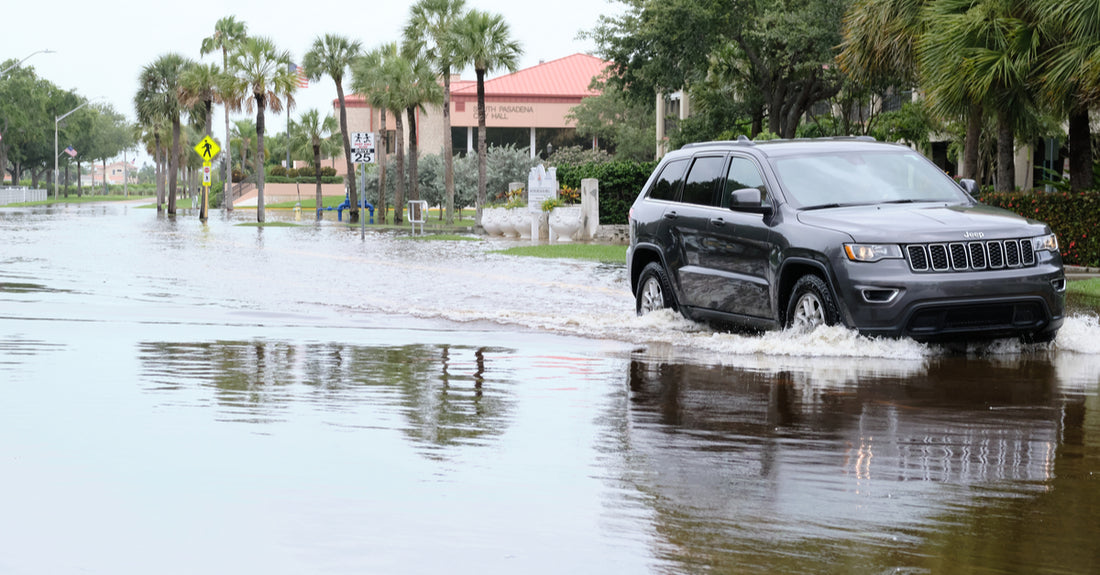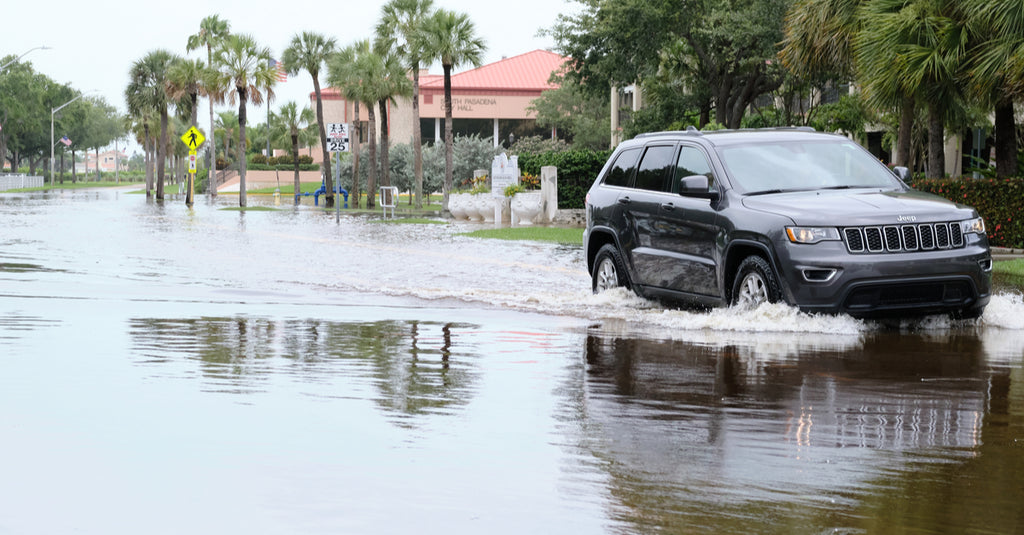Top 10 Tips for Preparing Your Car for The Florida Weather
As a Florida resident, you know that nothing is more important than maintaining your car. Between the heat and humidity, the frequent heavy rains, and the threat of hurricanes, keeping your car well-maintained is essential to its performance and lifespan. Several things can affect your vehicle, from mold and mildew to rust, if not properly taken care of. To help keep your car in tip-top shape, we've compiled a list of our top tips on how to get your car ready for summer and the Florida weather.
1. Wash Your Car Regularly
Washing your car is a must-do to maintain the value and appearance of your vehicle. It keeps your paint looking nice and shiny, but it also prevents rusting. In Florida, where the sun is almost always shining, it's even more important to keep the salt and dirt off your car, so you don't end up with corrosion.
2. Check Your Battery
It's not just the salt that can cause damage to your car in Florida-the heat can be just as damaging. The hot sun can dry out your battery's fluids and reduce its charge, making you more likely to get stranded with a dead battery during the rainy season or after long cloudy weather. To avoid this, make sure you're checking on your battery for cracks or leaks. You should also have it inspected regularly by a professional mechanic who can test its charge and fluid level.
3. Inspect Your Air Conditioner
Unfortunately, when it comes to car maintenance in Florida, you can't skip out on air conditioner inspections because of how often our summers are hot enough to require AC use in vehicles. The humidity in Florida makes it even more important that your air conditioner is working properly than just the average hot day.
4. Check Your Tires
Tire pressure is one of the most important things to check in your car, especially when the weather is changing. The lower the pressure, the more unevenly your tires will wear out. Check your owner's manual for the ideal tire pressure for your car, and then use a tire-pressure gauge to test it. If it's below the recommended number, pump it up!
5. Inspect Your Wiper Blades
You put a lot of wear and tear on your wiper blades in Florida-especially if you live near any of the coastlines or bodies of water! If yours aren't working properly, they won't be able to clear away rainwater efficiently, leaving you with limited visibility in dangerous conditions. Check them often to make sure they're still good, and replace them once they show signs of wear and tear (typically every 1-3 months).
6. Check Your Engine Coolant Level
Engine coolant is one of the most important fluids to watch. Your engine coolant keeps your engine from overheating, which can happen quickly when temperatures rise and high humidity levels. Your engine needs a mixture of coolant and water to help maintain a consistent operating temperature, so it's important to ensure enough in the system before summer hits. Ideally, you should use a product that protects metals, including aluminum, brass, and copper. The product should also be corrosion-resistant and include a mixture of organic and inorganic corrosion inhibitors that protect against rust and other forms of corrosion. You should also check the condition of the hoses that connect to the coolant reservoir for any visible signs of damage or leaking fluid.
7. Check Your Brake Fluid
Brake fluid absorbs water quickly, especially in Florida's steamy weather. Water will cause the fluid to boil at a lower temperature, so if you're driving in hilly areas or need to stop frequently in traffic, you could be at risk of not having enough brake pressure. You should get your brake fluid flushed before the rainy season begins as a preventative measure.
8. Keep a Rag in Your Car
If you live in Florida, you're probably used to the heat - but your car might not be. Before leaving the driveway, give your vehicle a once-over to ensure there's no standing water or condensation that could drip onto the seats. If it's raining and you're not going far, you can also keep a towel or rag in the back to wipe down seats.
9. Get a Window Tint
Window tints help block harmful UV rays from damaging your car's interior - and they'll help keep the inside of your car cooler. A good quality tint will last for years if installed properly. In addition, window tints provide an extra layer of protection for passengers should glass break during an accident or extreme weather event like hurricane season.
10. Use an Air Freshener
We all have that friend who gets into the car after sweating profusely at the gym and still smells like roses afterward thanks to their air freshener - but doesn't think this kind of hygienic product is only for Type A personalities. There are plenty of natural scents available to help neutralize odors instead of simply masking them.
Final Words
Preparing your car for Florida summer and other seasons is a must to keep your vehicle in good condition. From maintaining the right fluids to keeping tires properly inflated, the above discussed are the top tips for preparing your car for summer heat.
Are you looking for aftermarket auto parts at unbeatable prices? Look no further than PartsMax. Order online or visit our showroom in South Florida.


